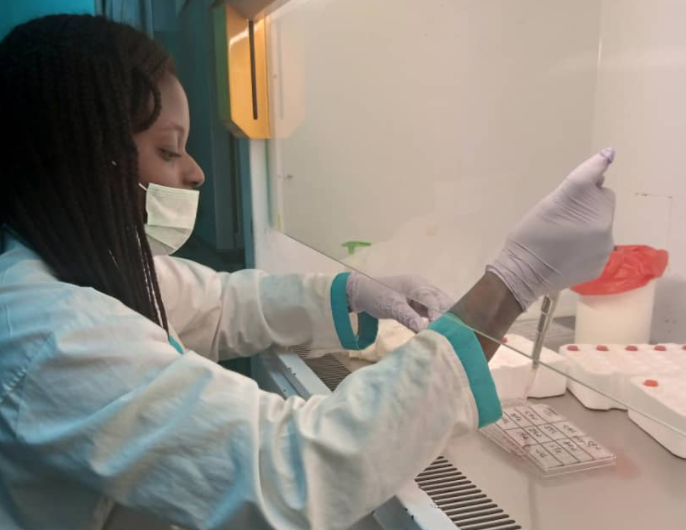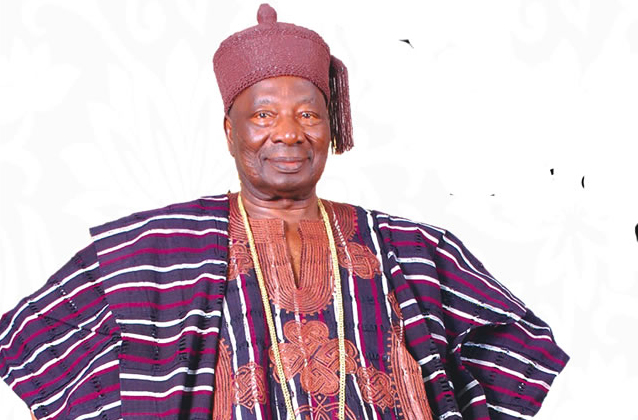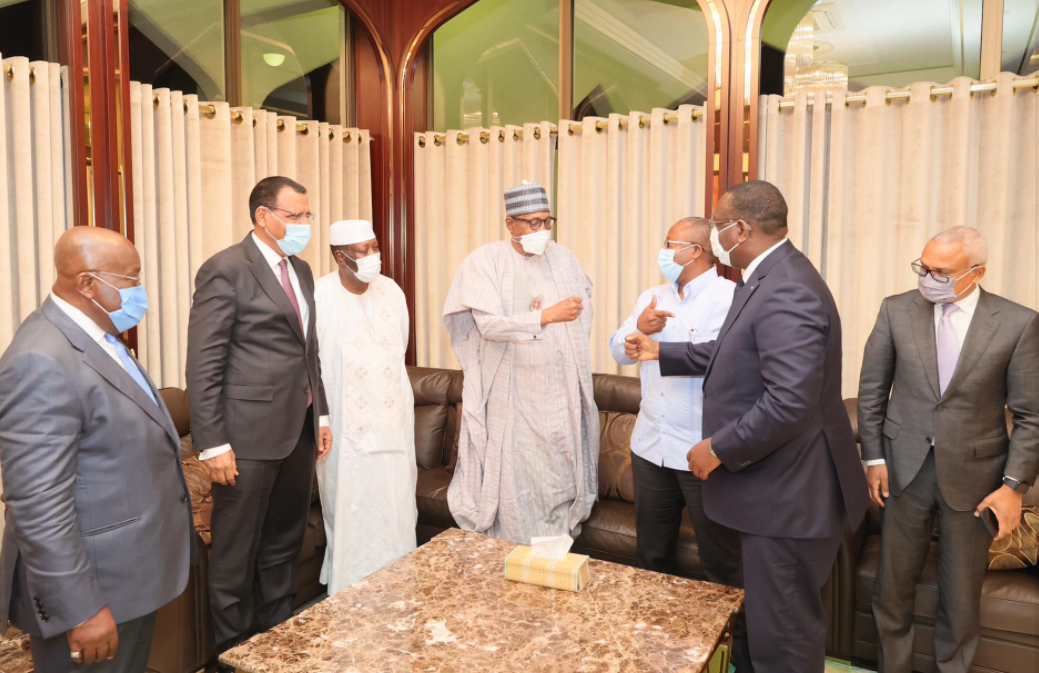In February 2016, Mr and Mrs Olayinka sat inside the faculty of pharmacy auditorium, University of Ibadan, to attend the induction ceremony of Olabimpe, their daughter, who had graduated with an impressive result of 6.6 cumulative grade point average (CGPA) out of a possible 7.0. They were unaware that a bigger surprise awaited them until they were called to the podium of the auditorium for recognition and honour as parents of the best graduating pharmacy student. Their daughter had made them proud, and she would make them even prouder.
“My parents felt honoured and elated. They were surprised too because I didn’t tell them that I was going to receive an award,” Olabimpe told TheCable in an interview on her academic journey.
WHO IS OLABIMPE OLAYINKA?
Olabimpe is a 29-year-old native of Ogun state. She is a Christian and grew up in Ijebu-Igbo and had her primary education at Parent’s Pride nursery and primary school and her secondary education at Molusi College, both in Ijebu-Igbo. She is the last of five children.
Advertisement
Olabimpe loved reading right from her childhood and could read and write relatively well before she enrolled in primary school.
“My parents are advocates of hard work and education. Though they didn’t have the chance to have much formal education, they were dedicated to helping us all get the highest form of education possible,” she said.
INNATE FLAIR FOR TEACHING
Advertisement
As early as her secondary school days, Olabimpe had started tutoring her classmates. She explained that she had not always been at the top of her class and “I was good enough being 5th in a class above 100”. At the time, she did not realise her potentials until she started preparing for her senior examinations.
“There was a day I needed to teach my classmates organic chemistry and the teacher had not started teaching us the topic so I used my brother’s school note to prepare for the class,” she said.
“To my surprise, I taught the class and my classmates started clapping. I asked them why they were clapping, they then pointed out that I had taught them for over one hour offhand. I didn’t even know. That was a moment of self-discovery for me. I didn’t know I could be that good.
“So I was encouraged. I intensified my effort, I enjoyed the course materials. In SS3, I was topping my class with perfect scores in most of my subjects.
Advertisement
“I wrote JAMB shortly after that and scored 225. I wanted to study pharmacy because of my love for organic chemistry and herbs. I wanted to discover drugs from herbs. But it took three years before I gained admission at all because I didn’t have the necessary connection.
“In 2009, I got an offer to study microbiology in OOU. After my 100 level, I was not enjoying the course so I wrote another JAMB where I scored 260. That was what took me to UI to study pharmacy.”
Olabimpe took teaching into her undergraduate and postgraduate days, a gesture she said she also gained from.
She added that other than research, she plans to go back to the classroom, both as a student and as a teacher.
Advertisement
“What I always do and even I did in my masters class was that I loved teaching and I think teaching brings out the best in me. I tried to study ahead of the class and ask a lot of questions. After the class, I gathered my classmates and I taught them. By teaching them, I get better. There’s a way you teach, you learn twice. And I read, to be candid.
“I would love to teach in a university… anywhere, I can teach anywhere.”
Advertisement
THE BEST IN THE FIRST

Advertisement
UI students are always found claiming to be from the first and best university in Nigeria and Olabimpe took the claim beyond words to her academics.
She emerged the best graduating pharmacy student in 2016, with a 6.6 CGPA out of a possible 7.0
Advertisement
She took the feat to an even greater level when in 2021, she was announced as the best graduating master’s student in the university — this time, with a perfect CGPA of 7.0 out of 7.0.
A JOURNEY OF GAINS, AND LOSSES
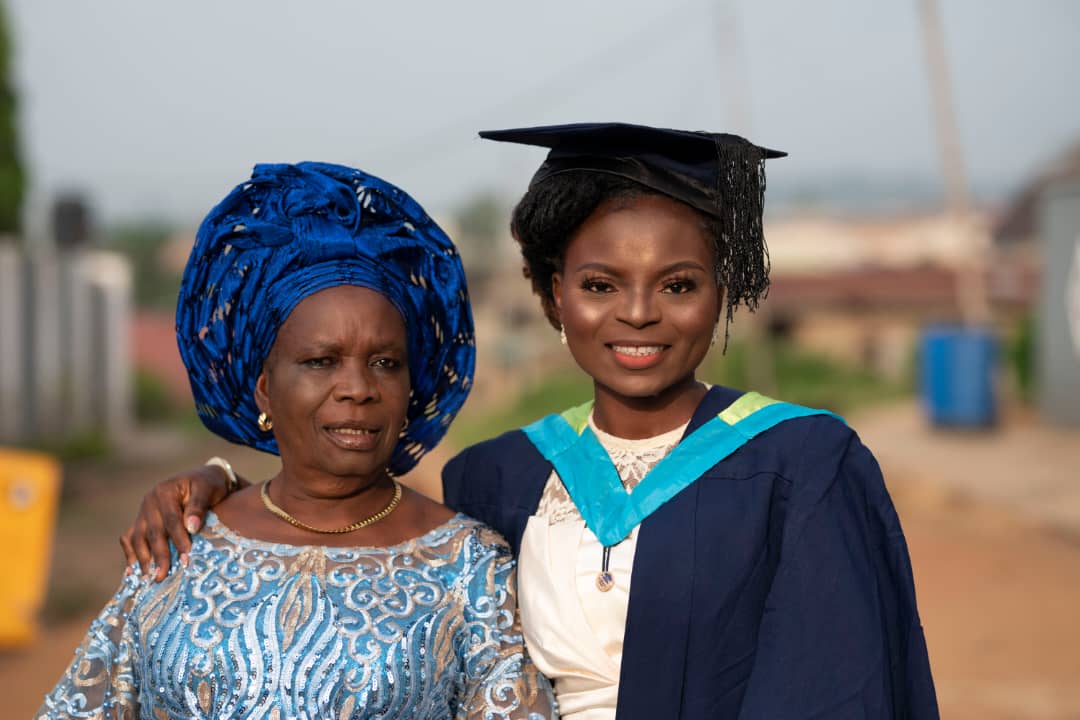
In the course of her seemingly smooth-sailing academic journey, Olabimpe lost her father shortly after her induction in 2016. Then in September 2020, she lost her husband after a brief illness. They were married for three years and have a son.
According to her, she first met Adebayo Ogunbajo, her late husband, in the church in 2010.
“He was the church organist at that time while I was a chorister aspiring to learn to play the piano. He was a committed believer,” she said.
“He helped me build my piano skills and helped me gain enough confidence to play piano in church. We’d been friends before we got married in 2017. He was always very supportive of my ambitions, most times he would even dare me to dream bigger.
“During my masters, he ensured I was comfortable enough to focus on my studies, he would often assist me with taking care of baby and house chores so I could study. In fact, he helped in collecting the plants I used for my project research. He believed so much in empowering others, especially ladies, through education and skill acquisition so they can be financially independent.”
But rather than let grief weigh her down, she dusted herself up and faced the odds. She explained that support from family, friends and some groups helped her scale through the trying times.
“That was the most difficult part, really. He fell ill in September and he was admitted to UCH,” she recounted.

“He was on admission for about six weeks and he passed on in October. School resumed in January. I couldn’t even think, talk more of write or read. What I wanted to do then was maybe write a mail to the school and tell them I needed to take a break but then I felt it was just project that was left. If I deferred at that point, I may not complete the master’s. All my lecturers were so so supportive. So I tried and God helped and I was able to finish everything in February.”
Apart from relying on friends and family to get through the heartbreak of loss and its aftermath, Olabimpe said she also got help from NGOs such as the Lawrence Grace Foundation, Progressive Heritage Foundation, Ayolam Care Foundation.
A CURE FOR CANCER FROM AFRICAN HERBS
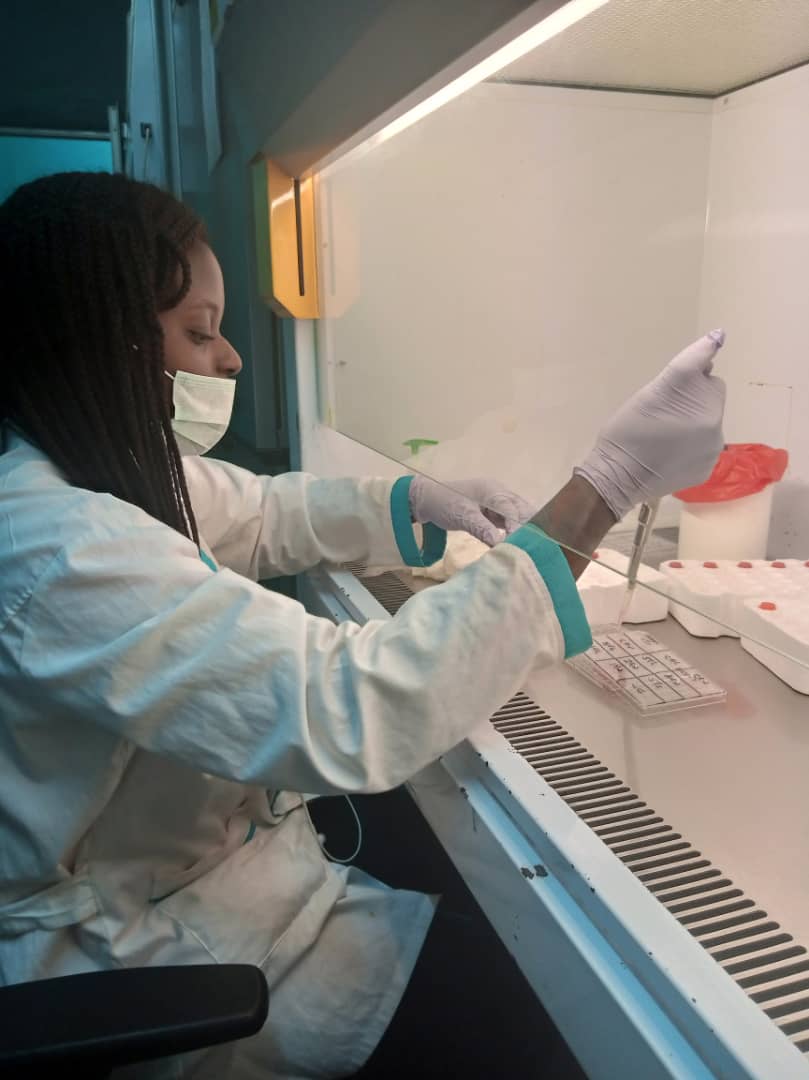
Olabimpe said she is passionate about education and healthcare, and that was one of the factors that informed her decision to study pharmacognosy — a branch of pharmacy that focuses on drugs from natural products — at her postgraduate level.
She explained that she is particularly interested in developing a less toxic and more affordable cure for cancer from African herbs.
“What took me to pharmacy in the first place was I wanted to develop drugs with herbs. I know we use herbs and it works but I don’t like the way we use it traditionally. The Chinese have made a lot of progress with their herbs in treating diseases like standardised methods so that is the kind of thing I want to do… to develop our own herbs African herbs in a standardised manner that has a particular dose and treats a particular disease,” she said.
“So, that is what I intend to do, to do more research on drug discovery and development from herbs. There are people that have already done a lot of work on that and they’ve made progress. I want to focus on cancer research, use of herbs in the treatment of cancer. In my master’s thesis, with guidance from my supervisors Prof E.O. Ajaiyeoba and Dr Omonike Ogbole, I screened some Nigerian medicinal herbs on cancer cells. The herbs have been reported to be used traditionally for cancer treatment. On scientific analysis, only one of the herbs showed a promising result. I am interested in cancer treatment because even before I got to UI, I had family friends that lost family members to cancer and when I got to UI, my guardian lost her mother to cancer.
“And I’ve come to learn through research and my interaction with people that when you mention cancer, especially in Africa or Nigeria of today, it is more like a death sentence. And it’s painful to see people die of cancer. They die painful deaths like a part of them being taken away from them daily and many times, we don’t have the therapeutic options to help them.
“And even when there are therapeutic options, many people can’t afford it. And even when they can afford it, they are so toxic at times, you don’t even know if it is cancer that killed these people or the side effects of the drugs they are using.
“So I feel like if we can get safer alternatives from herbs for the treatment of cancer, it will not only be cheaper, most likely, it will be more tolerable for the body and less toxic and then give people a chance to live a better and healthier life.”
FUNDING, ERRATIC POWER SUPPLY INHIBITING CANCER RESEARCH
Speaking on the healthcare system in Nigeria, Olabimpe said the government needs to get more involved and boost investment in the sector.
“There is a limit to the kind of research you can do in Nigeria. And one major thing is power supply. For instance, the cells and some other reagents used in cancer research have to be preserved in cold chain. With the power situation in Nigeria, that is a herculean task,” she said.
“If we have government funding research, that would be better. I really pray to God to get the chance to work in standard research labs.”
Add a comment

